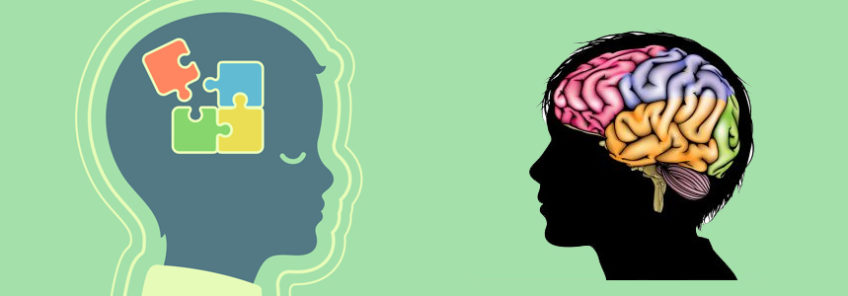Autism Spectrum Disorder (ASD)

- Family history: Families who have one child with ASD have an increased risk of having another child with the disorder.
- Your child’s sex: Boys are 5 times more likely to develop ASD than girls.
- Extremely preterm babies: Children born before 26 weeks of pregnancy have higher risk of ASD.
- Genetic disorders: Children with some genetic disorders are at high risk.
- Others: Environmental factors like viral infection, exposure to air pollution during pregnancy and increased parental age may also have a connection but more research is necessary to establish the connection.
- One of the controversies in autism is whether vaccine causes autism or not. Although many people still believe in the association, medical research does not support it.
- Social problems: they do not show interest in others, prefer being alone, do not understand how others are feeling; has poor eye contact.
- Language and communication problems: They may not speak or have delayed speech, may lose previous ability to say words, no meaningful, two word phrases by 24 months or no babbling by 12 months of age or no words by 16 months.
- Poor imagination: they tend to play the same game or same activity every day.
- Unusual behavior: move constantly, they may repeat their actions, may be obsessed with something, may be angry or aggressive if any routine is changed, etc.
- Seizures: may occur in children who have severe ASD.
- Doesn’t respond with a smile by 6 months;
- Doesn’t mimic sounds or facial expression by 12 months;
- Doesn’t babble by 12 months;
- Doesn’t say a single word by 16 months;
- Doesn’t play or pretend by 18 months;
- Loses previously acquired language or skills at any age.
Autism Spectrum Disorder (ASD) is a disorder of brain development that impairs child’s ability to communicate and interact with others. Children with this disorder have poor social communication, social interaction skills and have limited set of interest and activities. These children also manifest delay or absence of language development, attention and intellectual disabilities. These disabilities causes significant impairment in social, occupational and other areas of functioning.
The term “spectrum” refers to the wide variety of symptoms and severity and covers many types of conditions like autism, Asperger’s syndrome, childhood disintegrative disorder and pervasive developmental disorder. In some cases, the symptoms are subtle and severity is mild and may go unnoticed for many years.
The number of children diagnosed with autism spectrum disorder is rising. ASD affects 1 in 68 childrens. Boys are nearly 5 times more likely to have ASD than girls. Some children show signs of ASD in early infancy but other children may develop normally in early childhood and suddenly becomes withdrawn, even lose language skills they have already acquired.
Causes
The actual cause of autism is still unknown. ASD affects of all race and nationalities but certain factors increases child’s risk. They include:
Symptoms
Signs and symptoms of autism varies from mild to disabling. Every child is different. Symptoms become apparent in the first three years of life. The following are the range of symptoms that indicate your child is at risk for ASD:
Diagnosis
There is no biological test to diagnose autism. You should consult your doctor, psychologist or speech pathologist if you notice the following responses of your child:
Treatment
Autism is usually a lifelong condition. While there is no cure for autism spectrum disorder, intensive, early treatment can make a big difference in the lives of many children. The goal of treatment is to maximise your child’s ability to function by reducing ASD symptoms and supporting development and learning. Every child with autism is unique so the treatment plan is individualized to meet specific needs. The mainstay of treatment therapies are behavioural and communication therapies, education therapies, family therapies and medications to alleviate symptoms like anxiety, depression or behavioural problems.
The World Health Organization (WHO) indicates that parents themselves can give psychosocial and behavioral treatments to the child with autism. If your child has autism spectrum disorder, you can help improve your child’s language and social skills so that your child can adjust to the needs of his daily life. However, they will need some support throughout the life.
Once you suspect your child is having the ASD like symptoms, talk to the specialist as soon as possible. It is best to begin intervention sooner than later, so the benefits of therapy can continue on throughout the course of life.
Prevention
There are no preventive measures for autism since the exact cause is not known. In many cases, the symptoms of autism becomes less pronounced as child gets older. Some people with autism go to live typical lives, but often continue needing services and support even as they grow older.



Send us your feedback on this article